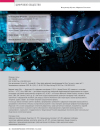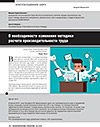Epic Fail of BigTech Digital Transformation. Where is the Key to Level Up? [Epic Fail of Digital Transformation of Transnational Corporations. Where is the Key to a Level up Management?]
DOI: https://doi.org/10.33917/es-4.184.2022.46-55
World trend of the XXI century — Industry 4.0 and digital platforms. In 2014, General Electric (GE) partnered with Big Tech giants — AT&T, Cisco, IBM and Intel — to take control of the global manufacturing industry created the Industrial Internet Contributors Association (Industry IoT Consortium IIC). By 2021, the IIC included Microsoft, Hewlett-Packard, Accenture, Huawei, Bosch, EMC, SAP, Siemens, SAS and others. GE together with BigTech created the industrial cloud platform Predix, declaring it to be practically an “operating system” for factories, analogous to Android or iOS in the world of machines, the language of the industrial Internet.
However, in 2020 GE and Predix suffered a devastating fiasco.
The article provides an analysis of the root causes and problems, and formulates the requirements for digital platforms of industrial software. The author describes alternative solutions and new principles for implementing digital transformation of Industry 4.0 based on the closing technologies of digital genesis, graph-centric platforms, tools, models and systems of collective conscious scientifically based balanced management (industrial, corporate, social, state). Closing technologies offered by Russia have got an enormous social and political resource.









